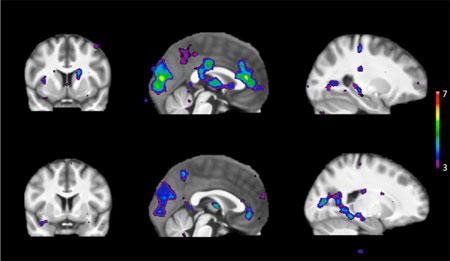New publications
The brain's response to smoking depends on genes
Last reviewed: 01.07.2025

All iLive content is medically reviewed or fact checked to ensure as much factual accuracy as possible.
We have strict sourcing guidelines and only link to reputable media sites, academic research institutions and, whenever possible, medically peer reviewed studies. Note that the numbers in parentheses ([1], [2], etc.) are clickable links to these studies.
If you feel that any of our content is inaccurate, out-of-date, or otherwise questionable, please select it and press Ctrl + Enter.
Have you ever been surprised by the ability of some people to calmly give up smoking? And this when so many millions of smokers are powerless to overcome this deadly addiction.
Smokers will have another excuse in their arsenal for their helplessness against tobacco addiction.

As it turns out, it’s not just a matter of a strong desire or unwillingness to quit smoking, but of the genes that are responsible for the formation of nicotine addiction.
Scientists at the Montreal Neurological Institute have found that people who metabolize nicotine quickly, which is genetically determined, have a more pronounced brain response than those who metabolize nicotine more slowly.
Thanks to the results of this study, scientists will be able to develop programs to help people overcome nicotine addiction.
Smoking associations, such as a cigarette or the sight of one being consumed, provoke relapses and the habit returns again.
Liver enzymes are responsible for nicotine metabolism. Changes in the gene that this enzyme codes for determine the rate of metabolism and, consequently, the level of nicotine in the blood that reaches the brain.

Scans show areas of brain activity in response to stimuli in people who are fast nicotine metabolizers (top row) and slow nicotine metabolizers (bottom row)
As part of their research, the researchers analyzed nicotine metabolism levels and liver enzyme genotypes.
The volunteers who took part in the experiment smoked from 5 to 25 cigarettes a day. They were observed for more than two years. Using magnetic resonance imaging, specialists measured the rate of nicotine metabolism in people with the highest and lowest levels.
It turned out that people with a fast metabolic rate had a significantly more intense brain response (especially in areas associated with motivation, reward and memory) to visual stimuli associated with smoking.
“This response supports our hypothesis that the brains of people who metabolize nicotine rapidly are more responsive to such stimuli. This is due to their daily cigarette use and fluctuations in nicotine levels in the blood. In other words, these people associate cigarette smoking with nicotine spikes,” says study co-author Alan Dagher. “Conversely, people who metabolize nicotine slowly, who have relatively constant nicotine levels in the blood throughout the day, are less likely to develop conditioned responses to such stimuli. For them, smoking is not associated with nicotine spikes, so they smoke for other reasons. Possible reasons for smoking in such people include relief from a cigarette in a stressful situation or maintaining cognitive stimulation.”
Continuing research in this direction will help to create various methods of treating nicotine-dependent people.
